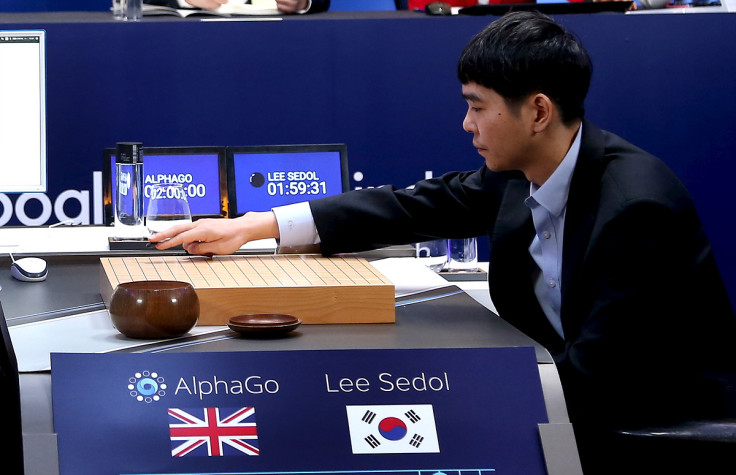Surprise! Google's AI neural network has been secretly beating the world's top Go players in online matches
China's top Go players have been beaten several times online by a mysterious player now revealed to be a robot.

Chinese social media is currently alight with the news that some of the country's top Go players have been beaten multiple times, not by a human, but by a robot, which has now been revealed to be a software program called AlphaGo run on Google's deep learning neural network DeepMind.
In March 2016, DeepMind made international news when the AlphaGo program succeeded in beating the Go world champion player Lee Sedo, 33, from South Korea by 4-1. DeepMind is a neural network – essentially a large web of artificially intelligent classical computers that are trained using computer algorithms to solve complex problems in a similar way to the human central nervous system.
The computers are separated into different groups known as 'layers' to examine different parts of the problem, and each layer's answer is then combined to produce a final answer.
Go is an ancient Chinese abstract strategy game that originated over 2,500 years ago and is considered to be more complex than chess. One player uses white stones and the other player uses black stones, and the aim of the game is to try to surround the other player's stones and gain more territory.
On hearing the news that Lee had lost to AlphaGo, one of China's best players Ke Jie, 18, posted on Weibo that he didn't believe that the neural network could beat him, and after initial reluctance, eventually said in the Chinese media that he would agree to play DeepMind, according to Quartz.
No official date or time for the match was ever arranged, but according to recent Chinese state media reports, it appears that the match has already taken place – online.
AlphaGo won over 60 games in a week
Ke routinely plays Go on Chinese board game platforms like Tygem and FoxGo, and he lost against a user with the account name 'Master' three times during the period of 29 December 2016 to 4 January 2017, according to Chinese news site NetEase.
Including the matches against Ke, in total over the period, 'Master' won over 60 games against some of the world's other top Go players, including Park Jung-hwan (ranked world number 3), Iyama Yuta (ranked world number 5) and China's reigning Go champion Nie Weiping.
The user lost no games at all and no one had any idea who the user was, although Chinese media already began to speculate that 'Master' was very likely a computer.
Finally on 4 January, clarity came in the form of a Twitter post by DeepMind's London-based founder Demis Hassabis, who admitted that AlphaGo's latest prototype had been playing some unofficial online games as the users 'Master' and 'Magister' on FoxGo and Tygem.
"Having played with AlphaGo, the great grandmaster Gu Li posted that, 'Together, humans and AI will soon uncover the deeper mysteries of Go'," DeepMind's statement reads.
Excited to share an update on #AlphaGo! pic.twitter.com/IT5HGBmYDr
— Demis Hassabis (@demishassabis) January 4, 2017
"Now that our unofficial testing is complete, we're looking forward to playing some official, full-length games later this year in collaboration with Go organisations and experts, to explore the profound mysteries of the game further in this spirit of mutual enlightenment. We hope to make further announcements soon!"
Nie, who is 64 and won the inaugural World Amateur Go Championship in 1979, lost against AlphaGo in an online match on 4 January. "Go is not as simple as we thought, there's still huge room for we humans to explore. Either AlphaGo or Master, it's sent by the 'Go God' to guide humans," he told the Shanghai Observer.
© Copyright IBTimes 2025. All rights reserved.






















